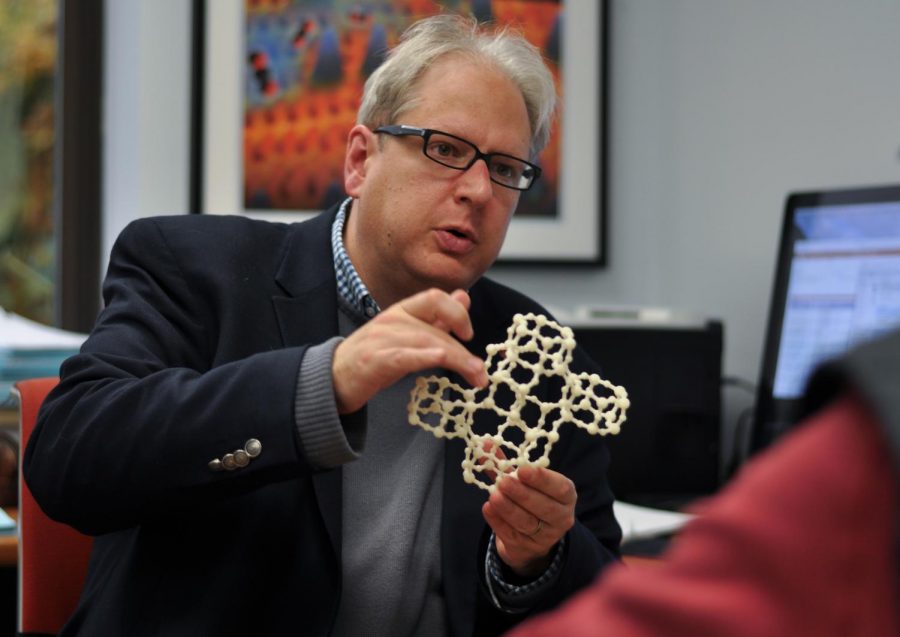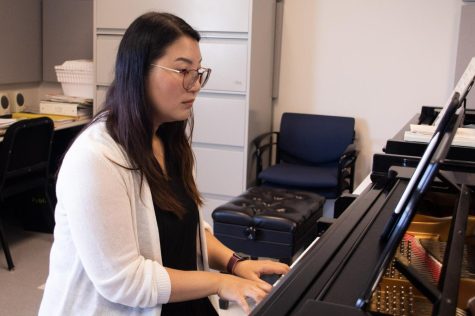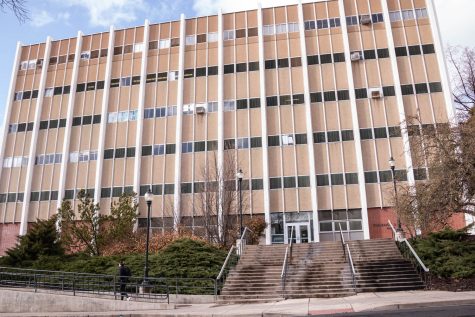Professor named highly influential by American Chemical Society
Researcher works with catalytic converters in cars, real world issues
KADEN NELSON | THE DAILY EVERGREEN
Jean-Sabin McEwen discusses his recent award as well as his past and present research Tuesday in Wegner Hall.
October 10, 2018
WSU Associate Professor Jean-Sabin McEwen was named a highly influential researcher by the American Chemical Society on Sept. 26.
McEwen, who has published 40 papers, some of which are in prestigious journals, received the award for his work in the field of catalysis.
James Peterson, director of the Gene and Linda Voiland School of Chemical Engineering and Bioengineering, said McEwen is extremely respected by other highly-respected scholars.
“He takes these fundamental computational tools, works with experimentalists and makes significant advances in a broad spectrum of areas that really affect our everyday lives,” Peterson said.
The American Chemical Society selects a small number of early-career faculty and designates them as highly influential, Peterson said. This is the second year they have given out this award and McEwen is the second WSU professor to receive it.
McEwen said his favorite part about receiving the award was being recognized with so many other talented researchers.
His research has been focused on understanding how a catalyst ticks so that he can use it to improve other applications.
“When I do research I like to apply these kinds of methods to real problems,” McEwen said. “If you’re just doing research to do research or math to do math, I’m not interested.”
A practical application of McEwen’s research is the catalytic converter inside of cars. The catalytic converter uses precious metals to convert carbon monoxide, nitric oxide and nitrogen dioxide, all of which can be dangerous gases to breathe, into gases that are safer like carbon dioxide or nitrogen, he said.
Through his research, McEwen said he wants to limit the number of precious metals used in catalytic converters.
McEwen also does research on chemical reactions that do not take place in a catalytic converter.
“We are looking at other kinds of reactions as well,” McEwen said. “For example, one kind of reaction that would be a holy grail in catalysis would be the conversion of methane.”
Peterson said McEwen is very passionate about his students being successful and he cares deeply about his students’ learning.
McEwen said he loves to see his students go on and succeed when they leave WSU.
“There’s a saying that I always say to my students that I am not your supervisor, I am your promoter,” he said.





















